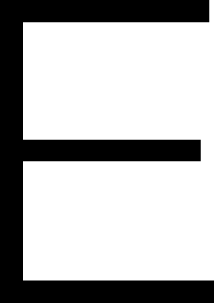











 SCROLL & LEARN MORE
SCROLL & LEARN MORE




The educational aspect of every society is extremely important. It allows nations to thrive, prosper, and evolve.
The education system in Switzerland has always been of great importance in international comparison. Not only is it very performance-oriented and divides students into categories in which they are allowed to develop their education, it is also very diverse. Each of the 26 cantons in Switzerland has its own laws under which it educates its students, but all follow the same governmental framework.
In this European country, school is compulsory up to the age of 15 when students complete the lower secondary level, which is well known in the West, or secondary school. After compulsory schooling, the young people decide, based on their performance in secondary school, whether they want to do an apprenticeship or attend high school.
This selective model, which is applied very early in the children’s development, is probably one of the reasons for the high level of education in Switzerland, a country that invests heavily in educational practice. This educational model obviously produces results, because when students come to university they are well prepared and focused on what best suits their abilities.
Many Nobel Prize laureates are in fact Swiss scientists, a total of 114 to be more exact.
During the curriculum 21 in the Swiss education system, a great emphasis is placed on subjects such as local language, a second national language, English, mathematics, biology, chemistry, physics, geography, history, civics, music, art and design, physical education and health, home economics, career counseling and vocational preparation, little is done to promote and develop the children’s social and interpersonal skills.
In secondary school, a stage in the life of a child between the ages of 12 and 15 when he or she is going through the main phase of puberty, one of the main focuses should be on social and individual development.
It is about preparing them and teaching them how to interact with the world around them in a time of confusion.
In an era of information, kids are being daily exposed to a variety of content that without the supervision and explanation of an adult can confuse and direct them into a wrong understanding of the world.
The main problem with the shift of the way teenage kids spend their time nowadays is that they tend to isolate themselves even more than the regular teenagers a decade ago. Without the obligatory instruments of socialization in schools, they are left on their own. Virtual friends and constant opportunities to interact with all sorts of negative comments, leave them vulnerable to experience anxiety and feeling felt out.
Social Friday was developed as a tool for companies, university students, and NGOs. Its main idea is to raise awareness about the social problems we all have in our neighborhoods and to inspire people to inspire people to make a difference.
The study that brought the attention of the founder of Social Friday, Mr. Fikret Zendeli, was an article about the unproductive time of Fridays in every office. It seems that our brain goes to “sleep mode” on Friday afternoons after the busy working week. Well, he decided to use this time for a different cause, shift the idea of team building and after-work parties and go out with his team to do something for their society in Skopje, North Macedonia.
Since their symbolic start in 2017 with planting flowers in the park behind the government building in Skopje, these events have become regular. One Friday every quarter BREON Engineering gets involved in a social work project with different organizations.
In 2019, Social Friday was launch internationally! Volunteers from Norway, Austria, Bulgaria, and Kosovo joined it and implemented this for the good of their company and their society.
In 2020, a graduate student (and Middle School teacher) from Zurich explored how Social Friday could be a program that engages much younger kids.
Her thesis, which was awarded with the highest score, highlights the systemic gap in children’s development of social skills in Switzerland. The idea is to use Social Friday as an educational tool that addresses this gap.
By implementing the mechanism of this social initiative, kids can experience first hand the difference they can create by being active members of society. By involving them more in the everyday problems in the neighborhoods they live in, they can become aware adolescents of tomorrow that will influence the change for a better society.
The children are blank slates whose minds get molded every day through the interaction with their parents, teachers, and the society around them.
We must be very careful about how and what we teach the minds of the future. We can not allow ourselves to be focused only on the technical theoretical facts without looking at the big picture. The social responsibility we all have is to teach the kids by example how to improve the world we live in.